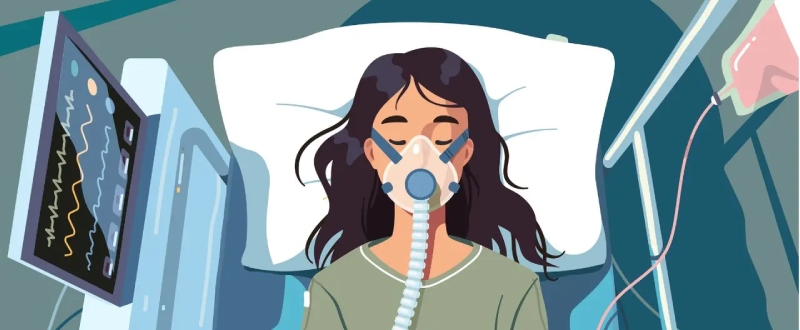Have you ever bumped your head and felt a sharp sting, only to forget the pain entirely moments later? Or maybe you’ve wondered if someone in a coma can still experience discomfort. The answer to both questions lies in the complex relationship between pain perception, consciousness, and the brain.
Pain Perception
Pain is a crucial warning system, alerting us to potential tissue damage. When we encounter a harmful stimulus, like touching a hot stove, specialized nerve cells called nociceptors send signals to the spinal cord and brainstem. These signals are then relayed to various brain regions responsible for interpreting the intensity, location, and emotional aspects of pain.
Here’s a simplified breakdown of the pain pathway:
- Nociceptors. These sensory neurons detect potential threats, like extreme heat, pressure, or caustic chemicals.
- Spinal Cord. Nociceptor signals travel to the spinal cord, where some initial processing occurs.
- Brainstem. The brainstem helps regulate basic functions like breathing and heart rate. It also plays a role in pain modulation.
- Brain Regions. The thalamus relays pain signals to various cortical regions responsible for pain perception, localization, and emotional response.

Consciousness and Pain
The experience of pain is more than just the detection of a noxious stimulus. It requires conscious awareness – the ability to feel and interpret the sensations your brain receives. For example, you might not consciously register a small paper cut while engrossed in a book, but a larger cut would definitely grab your attention.
Unconsciousness and Pain: Debunking Myths
While unconsciousness generally means a lack of awareness, the ability to feel pain can be a bit more nuanced. Here’s what science tells us:
- Nociception vs. Pain – the nervous system can still register pain signals even during unconsciousness. This is called nociception. Studies have shown brain activity in response to pain stimuli in anesthetized patients.
- Unconscious Response – even without conscious awareness, the body might react reflexively to pain. For instance, someone unconscious might pull their hand away from a hot object.
Important to Remember:
- Just because someone doesn’t respond to pain doesn’t mean they can’t feel it.
- The experience of pain during unconsciousness is likely different from how we perceive it when awake.

Ethical and Medical Implications
Understanding pain perception during unconsciousness has significant ethical and medical implications. Medical Care – doctors need to consider the possibility of pain even in unresponsive patients. Monitoring techniques and pain management strategies are crucial in such cases. Ethical Considerations – this knowledge raises questions about how to best care for patients in comas or under heavy sedation.
Conclusions
Pain perception is a complex process that involves not just the nervous system but also our state of consciousness. While we might not consciously feel pain when unconscious, the body can still register these signals. This understanding is vital for ensuring proper medical care and treatment for patients who cannot communicate their pain.





